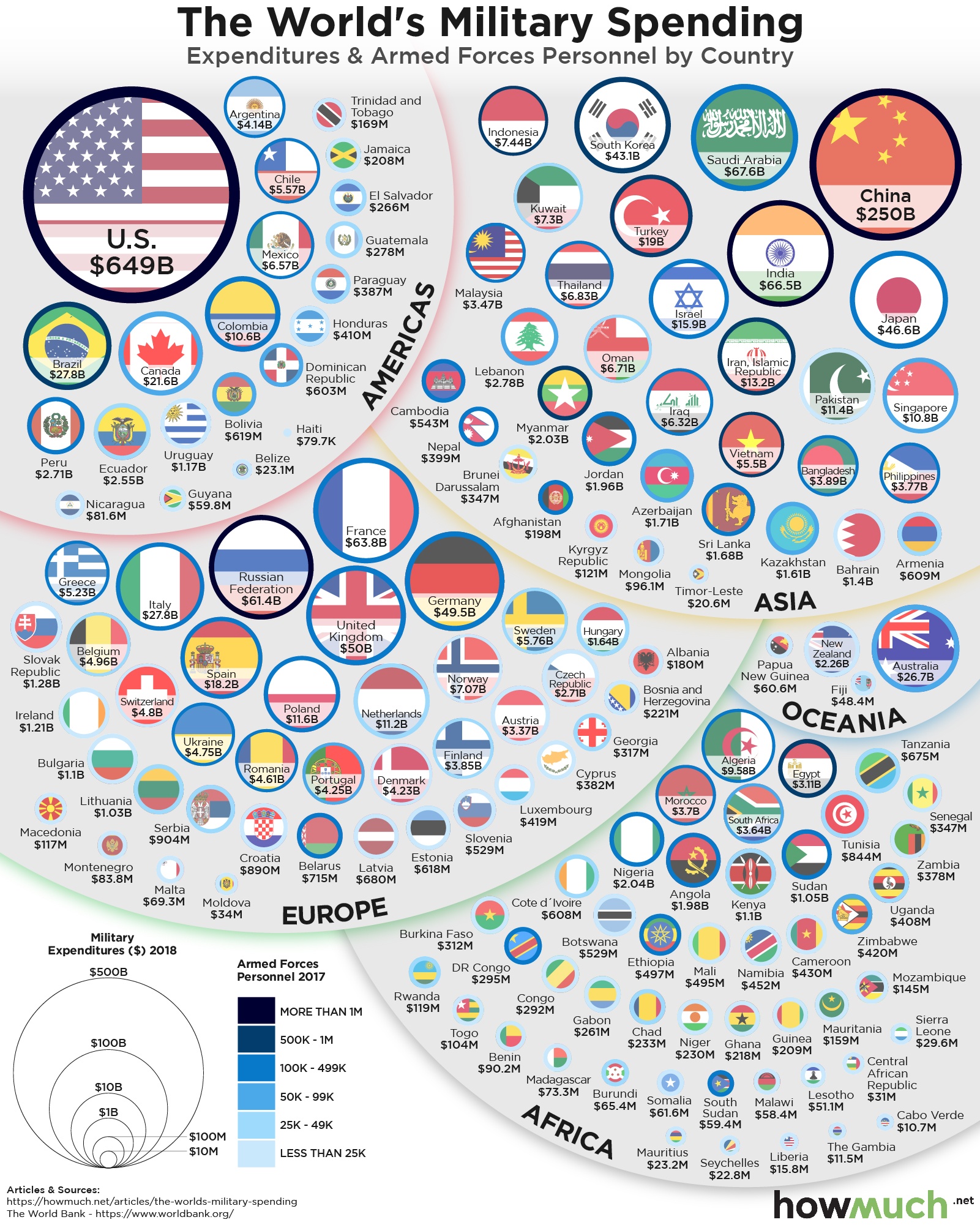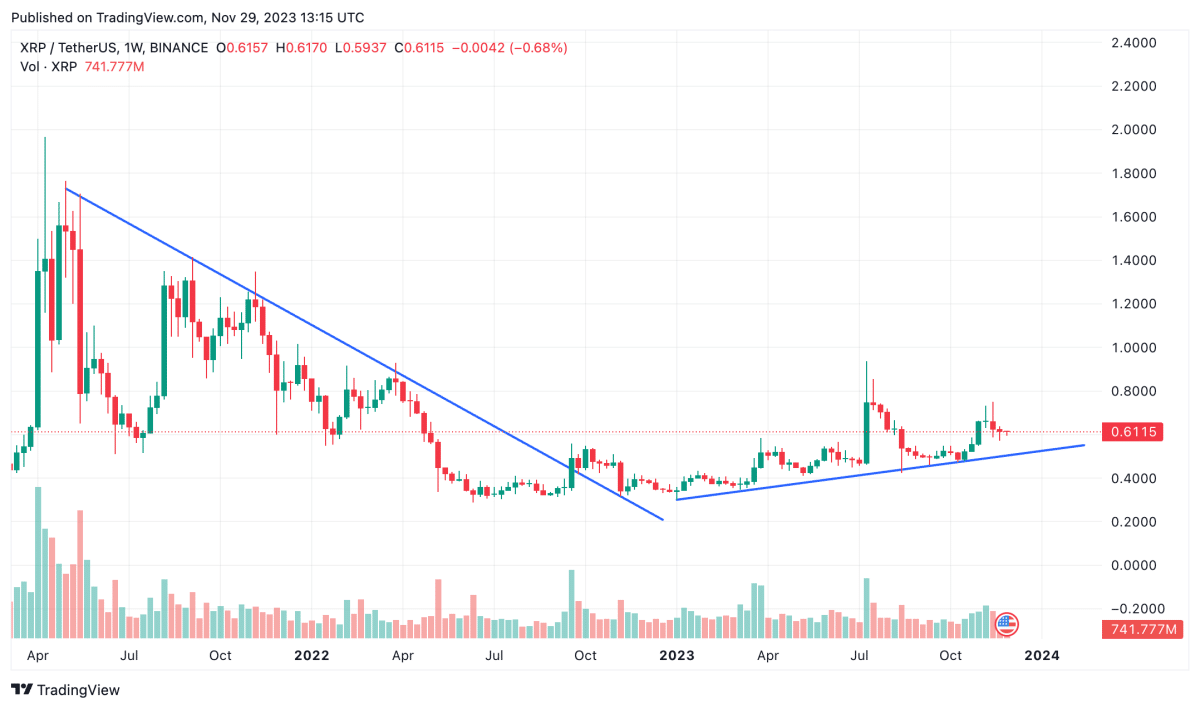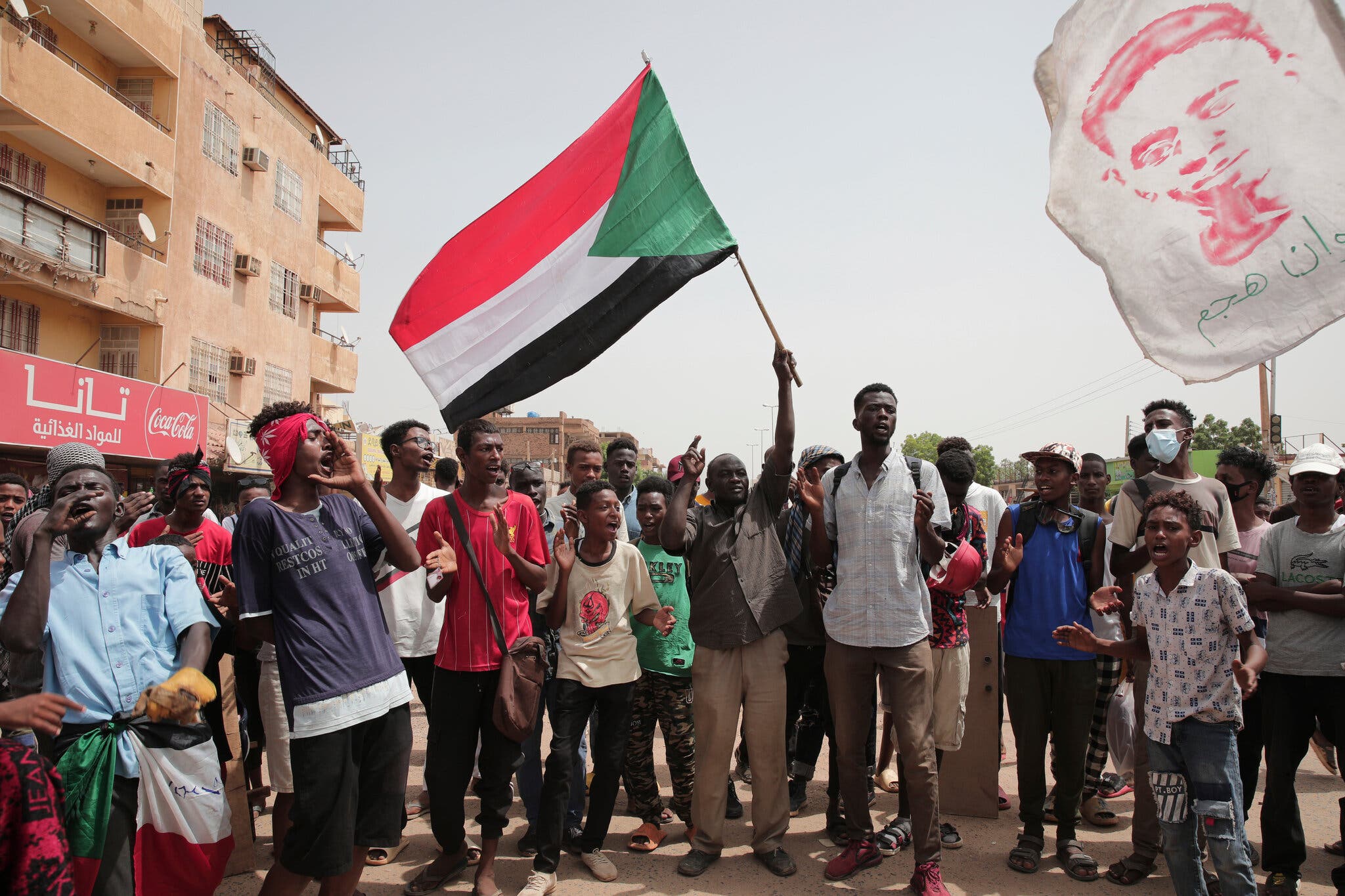Russia's Actions Drive Up Global Military Spending: Europe's Crucial Role

Table of Contents
The Direct Impact of Russia's Actions on Global Military Budgets
Increased Defense Spending in NATO Countries
The annexation of Crimea in 2014 and the full-scale invasion of Ukraine in 2022 served as stark wake-up calls for many NATO members. The perceived threat from Russia has led to a significant upswing in defense budgets across the alliance. We've seen substantial increases in military expenditure from key players:
- Poland: Poland has dramatically increased its defense budget, committing to a significant modernization of its armed forces and bolstering its defensive capabilities along its eastern border. This reflects a direct response to the perceived threat from Russia.
- Germany: Germany, traditionally hesitant on significant military spending, has undertaken a substantial shift in its defense policy, pledging to increase its defense budget to meet NATO targets and enhance its military capabilities.
- United Kingdom: The UK has also committed to increased defense spending, focusing on modernizing its armed forces and strengthening its contribution to NATO's collective defense.
These increases aren't isolated incidents. Many other NATO members in Eastern Europe, have witnessed double-digit percentage increases in their military budgets, reflecting a widespread recognition of the need for enhanced security in the face of Russian aggression. This increased defense spending signifies a major realignment of priorities and a commitment to collective security within the NATO framework. The keywords NATO, defense budget, military expenditure, and increased defense spending clearly reflect this trend.
The Spillover Effect on Non-NATO European Countries
The impact of Russia's actions extends beyond NATO's borders. Countries traditionally maintaining policies of military neutrality, such as Finland and Sweden, have experienced a paradigm shift. Facing heightened security concerns in the wake of Russia's invasion of Ukraine, both nations have abandoned their long-standing neutral stances and applied for NATO membership, signifying a dramatic change in their security policies. Furthermore, both countries have announced significant increases in their defense budgets, investing heavily in defense modernization to address perceived threats. This illustrates how Russia's actions have rippled outward, forcing a reassessment of security policies across the European continent. Keywords like military neutrality, security policy, defense modernization, Finland, and Sweden reflect this significant geopolitical shift.
Europe's Crucial Role in Responding to the Increased Military Spending
Collective Security and Burden Sharing
The increased military spending underscores the crucial role of NATO's collective defense mechanism. However, effective collective security hinges on fair burden sharing among member states. Achieving an equitable distribution of military expenditure within NATO presents significant challenges. Some member states consistently contribute a larger percentage of their GDP to defense than others, leading to ongoing discussions and debates about fair contribution and the need for a more balanced approach to collective defense. This requires transparent discussions and a commitment to ensuring that all members share the responsibility of maintaining security within the alliance. Keywords like burden sharing, collective defense, NATO strategy, military alliance, and transatlantic relations are central to understanding this dynamic.
Modernization and Technological Advancement
Responding effectively to the changing security landscape demands significant investments in military modernization and technological advancements. European countries must prioritize investing in cutting-edge defense technologies to maintain a credible deterrent and ensure their armed forces are prepared for future challenges. Key areas of focus include:
- Cyber warfare: Investing in robust cybersecurity infrastructure and developing offensive and defensive capabilities to counter cyberattacks.
- AI in defense: Utilizing artificial intelligence for enhanced situational awareness, improved targeting, and autonomous systems development.
European defense cooperation is crucial in this context, allowing nations to share resources, expertise, and technological advancements to avoid duplication of effort and maximize efficiency. This collaborative approach is essential for maintaining a strong and technologically advanced defense posture against evolving threats. Keywords such as military modernization, defense technology, cyber security, AI in defense, and European defense cooperation capture the essence of this critical aspect.
The Geopolitical Implications of Rising Military Spending
Shifting Power Dynamics
The significant increase in global military spending is fundamentally altering the global balance of power. The escalating competition between major geopolitical actors is reshaping international relations, increasing the risk of miscalculation and escalating tensions. Russia's actions have already led to a realignment of alliances and a renewed focus on defense capabilities in Europe and beyond. This shift in power dynamics carries significant implications for international stability and the potential for future conflicts. Keywords such as geopolitical landscape, power balance, international relations, and great power competition encapsulate the complexities of this issue.
Economic Consequences
The substantial increase in military spending has significant economic ramifications. The allocation of considerable resources to defense inevitably impacts national budgets, potentially diverting funds from essential social programs like healthcare, education, and infrastructure. This creates a trade-off between military preparedness and investment in other areas critical for societal well-being. The economic impact of this shift needs careful analysis to ensure sustainable growth and a balanced approach to national priorities. Keywords such as economic impact, military budget, fiscal policy, opportunity cost, and social spending highlight the critical economic dimensions of this issue.
Conclusion: Addressing the Challenges of Rising Global Military Spending Driven by Russia's Actions
In conclusion, Russia's actions have undeniably driven a significant surge in global military spending, profoundly impacting Europe. The increase in defense budgets across the continent highlights the immediate and long-term challenges to security and stability. A coordinated European response, emphasizing collective security, fair burden-sharing, and investment in modern defense technologies, is paramount. Continued vigilance and proactive strategies are essential to navigate the complex geopolitical landscape and address the enduring implications of Russia's actions on global and European security. Stay informed about global military spending trends and their effects. For further reading, explore resources from SIPRI, IISS, and NATO.

Featured Posts
-
 Xrp Price Prediction Will Xrp Reach 5 After Sec Lawsuit Dismissal
May 01, 2025
Xrp Price Prediction Will Xrp Reach 5 After Sec Lawsuit Dismissal
May 01, 2025 -
 Dau Tu An Toan Kiem Tra Ky Cang Truoc Khi Gop Von Vao Bat Ky Cong Ty Nao
May 01, 2025
Dau Tu An Toan Kiem Tra Ky Cang Truoc Khi Gop Von Vao Bat Ky Cong Ty Nao
May 01, 2025 -
 German Coalition Deal Sources Predict Agreement By Midday
May 01, 2025
German Coalition Deal Sources Predict Agreement By Midday
May 01, 2025 -
 Cbc Projects Poilievre Loss Implications For Canadian Conservatives
May 01, 2025
Cbc Projects Poilievre Loss Implications For Canadian Conservatives
May 01, 2025 -
 Wie Is Bram Endedijk De Nieuwe Presentator Van Nrc Vandaag
May 01, 2025
Wie Is Bram Endedijk De Nieuwe Presentator Van Nrc Vandaag
May 01, 2025
